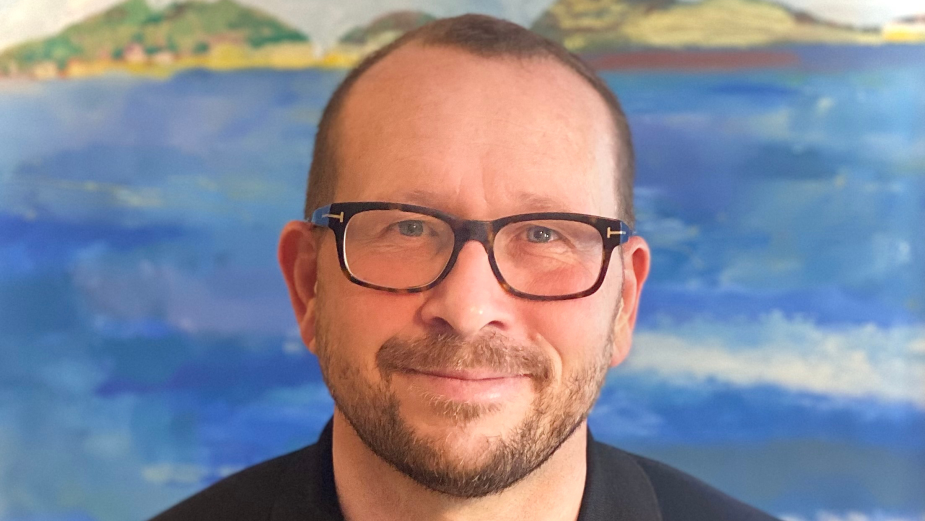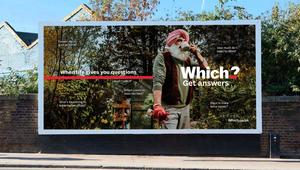
Production Line: Morgan Cox on How Anything is Possible When You Have Access to Experts

Morgan Cox leads MSQ’s production and dynamic content capabilities, helping clients deliver creative content in new and innovative ways. He previously ran Publicis Groupe’s central multi-channel production offering in the UK, helping tech, creative, production and data teams to embrace new methods and technologies to deliver business and client success. He’s also spent time as managing partner of Chemistry Digital, managing director of The Gate Films and ran Carat Group UK’s Manchester media planning and buying team.
LBB> What lasting impact has the experience of the pandemic had on how you and your agency think about and approach production?
Morgan> Our experience mirrors that of the wider production world. Once the shock of remote working rapidly wore off, production teams did what they do best: adapt, problem solve and thrive. Necessity (as the mother of invention) gave our clients and our agencies a moment to reflect and re-imagine what can be done to achieve exceptional production standards in new ways. It is easier now to get clients to support more innovative production approaches and as a result everyone’s tool-boxes have got that little bit bigger and more interesting!
For example, we used the time to build out a creative automation tech solution to re-use existing assets while we couldn’t shoot new content and that has now become a key part of how we plan our postproduction to scale how we fulfill dynamic campaigns.
LBB> Aside from Covid-19, what have been the most disruptive forces to hit agency production in the past few years?
Morgan> Decoupling and the explosion of tech remain the two biggest factors that have broken down and rebuilt the industry in a more dynamic way. The lasting impact of these I think have moved production both further upstream in clients’ own priorities and have driven more connectivity with media, data and creative teams. This has put innovation in production upfront in the invention of client solutions, not just at the delivery end. And it’s not just creating and making that have moved closer together – we’re putting production strategy alongside audience and media strategies to get the optimal benefit.
LBB> A good producer should be able to produce for any medium, from film to events to digital. Do you agree or disagree with this statement? Why/why not?
Morgan> Truly polymathic people are rare and you are really lucky if you get the next Riz Ahmed or Danny Boyle in your team. I think the real quality we look for is people who have great basics and instincts and first and foremost know how to build a team around a creative problem.
A good producer has to be fixated on getting the result; they don’t have to be expert at all the moving parts. Put them in the right teams and they can produce anything.
LBB> And leading on from that, when it comes to building up your team at the agency, what’s your view on the balance of specialists vs generalists?
Morgan> Our whole MSQ philosophy is built on providing specialist access as part of connected thinking and delivery around a clients’ challenge. Practically, this means producers play a connecting role across data, tech, and creative to design the right production approach and then pull in the right talent, either from our internal team or from the open market to execute.
As producers are front and centre in client relationships, the most important element is knowledge of the client’s sector. From that solid base, anything is possible when you have access to experts.
LBB> What’s your own pathway to production? When you started out, what sort of work were you producing and what lessons have stayed with you in that time?
Morgan> I was a media independent MD who got frustrated with inflated process and costs around ad-production. So I found some like-minded folk who wanted to work directly with clients, bringing creative and production into the same package.
My biggest lesson for that is to keep the instinct that, if it’s frustrating for a client, a creative or anyone involved, then there will be a better way to get it done, so be prepared to work the detail to find that improvement. The other truth which I think has remained is that if there is no joy in it, it won’t produce a great result!
LBB> If you compare your role to the role of the heads of TV/heads of production when you first joined the industry, what do you think are the most striking or interesting changes (and what surprising things have stayed the same?)
Morgan> I have huge respect for the head of TVs of the last decade, the way they used to deal with senior clients, ECs and great directors through effortless charisma and amazing EQ, faultless breadth of knowledge and a razor-sharp focus on quality.
With a background of media and tech, then running an indy production company specialising in direct-to-client work, my route was very different. I think the role of production lead/ head is now a broader church, where a wider variety of experiences are incredibly valuable in being open minded to all possibilities a contemporary production throws up. Then it’s about being able to navigate the range of skills and talents required to deliver it.
Those skills and qualities of EQ and creative focus are still paramount, as you need to apply them across more opportunities and more relationships than ever.
LBB> There are so many models for the way production is organized in the advertising industry - what set-ups have you found to be the most successful and why?
Morgan> Always having a direct-to-client emphasis on the production solutions have meant the fundamentals that I return to are providing fully integrated ideation, production and technology solutions that can flex around a clients’ budget and ambition.
The key to its success is ensuring the model is not a closed shop. Keeping a healthy tension between internal and the wealth of talent and tech in the open market is key. That, for me, is why production needs senior leadership, with the experience to manage this balance and flex.
LBB> When working with a new partner or collaborator, how do you go about establishing trust?
Morgan> Your track record, your relationships and paying on time are the currency on which trust is built and nurtured. From here you can ask of each other to test and develop concepts that prove capability without ever having to take a blind leap of faith.
LBB> What are your thoughts on the involvement of procurement in production?
Morgan> Procurement professionals who understand that production is not a commodity, who value the fact that realisation comes from outcomes and not only measuring inputs, add a huge amount of value and rightly make sure partnerships never get cosy. Our job, if this understanding isn’t within the experience of the procurement team, is to prove this is the case.
LBB> When it comes to educating producers how does your agency like to approach this?
Morgan> We try and strike the right balance between on-the-job training with tight mentoring. Well-structured regular reviews and feedback is key to give talent a solid base, whilst targeted training from the industry, as well as from other disciplines such as planning, media, tech and data, helps give them a well-rounded view. Most important of all is to nurture natural inquiring minds with encouragement and time to pursue alternative solutions to problems.
LBB> What new skills have you had to add to the team as a result of the pandemic?
Morgan> Logistics of managing in Covid has meant we have had to increase production planning resource, and the faster adoption of technology has meant we have up-weighted our tech team as more client work is utilising our dynamic creative tools. We’re very fortunate that we have grown through this period, so we are looking now for great talent across the board.
LBB> Should production have a seat in the c-suite - and why?
Morgan> For the reasons I mentioned before, with a finely balanced model you need to have the influence within an organisation to make long term commercial judgements that will be in the best interest of agency and client vs periodic P&Ls. Production interdependence with media, data and tech also means you need to take a genuinely strategic view of how it develops in cohort with investment and M&A plans across the organisation. If you don’t have someone who understands this on the C-suite, your offering will be left behind amongst a very aggressive innovative competitive set.
LBB> How have you approached integrating data with production workflows and processes? And, generally, how has data and the fact that we have constant live feedback on content performance changed production?
Morgan> Data proliferation has driven a more 'connected' approach to production – optimising audience and channels insights in advance of campaigns to ensure the modularity needed is realised in the production methodology.
We have adapted our briefing process accordingly. Now creative and production is briefed at the same time as our media teams, using both insight and performance data to inform the process. We have also developed a creative workflow tool, ADA, to ensure these elements can be brought together and built within an environment that enables both multi-team collaboration and the use of automation. This allows us to assemble all the variants required in the relevant media channels and enables the real time curation of possible variations to build personalised content.
LBB> Clients’ thirst for content seems to be unquenchable - and they need content that’s fast and responsive! What’s the key to creating LOTS of stuff at SPEED - without sacrificing production values? Is it even possible?
Morgan> Reimagining the 'faster better cheaper' trilemma by using disruptive tech and big data to resolve the inherent tensions is now well-trodden pitch fodder versus a mainstream adopted reality of how production is being delivered.
But IT IS possible and the main barriers are the cost complexities and cost-multiplication involved in putting together the right component parts to deliver it. Data, hybrid teams, automatio, connecting tech with media and data etc can be complicated and expensive to set up – and hard to control.
Our goal is to democratise access for our clients to the technologies that can impact cost and speed, so that we can collapse cost at the versioning and distribution end of the process and instead use the budget to create the highest possible quality in producing creative frameworks.
LBB> What’s the most exciting thing about working in production right now?
Morgan> The best two things remain the same as they have always been. One, production people are always the most fun and smart people to work with. And two, making great things is infinitely rewarding. The whole reshaping of the marketing services industry is working to our advantage, as production skills and expertise are rightly at the heart of how clients look to evolve their partner relationships. This means that for right-minded ambitious talent there has never been a better time, if you embrace new models, new tech and new types of partnerships.
LBB> And what advice would you give to an aspiring agency producer?
Morgan> Find some like-minded people and make something together that you are passionate about.













